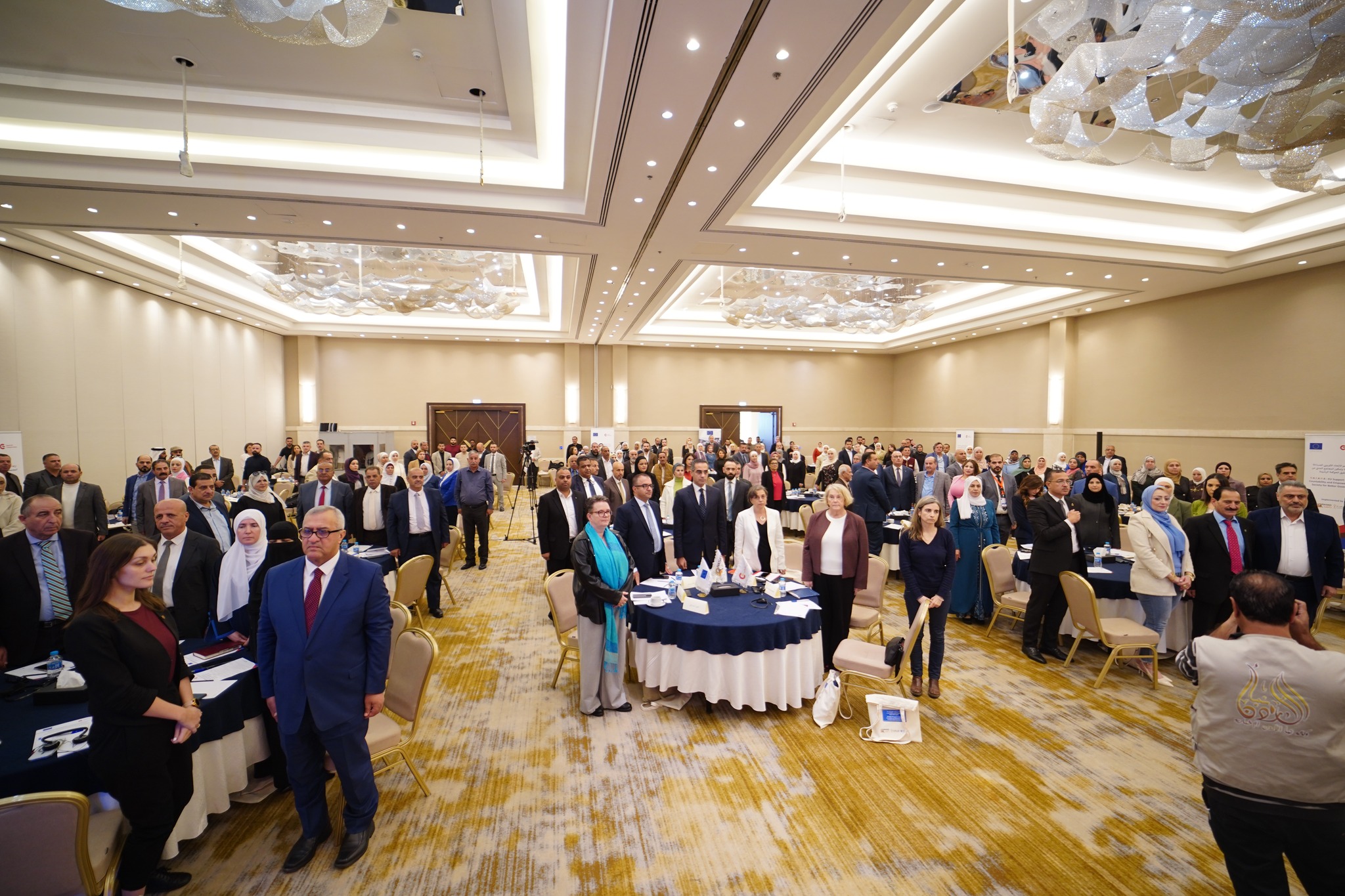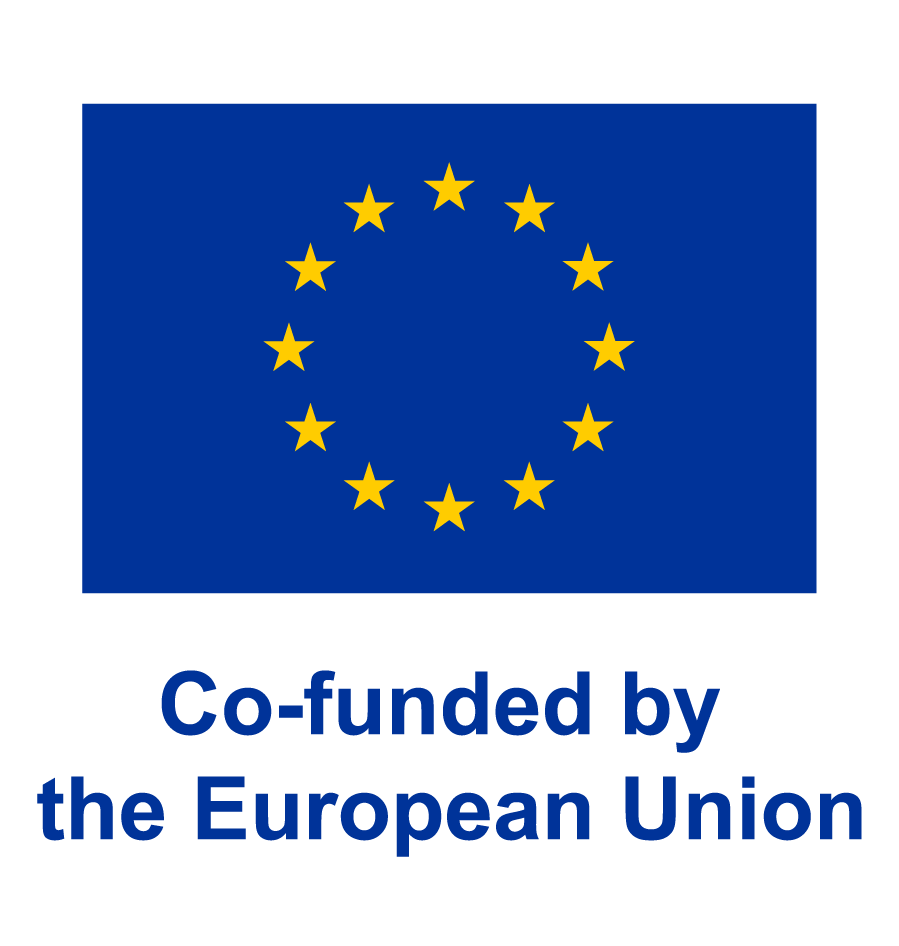Latest News and Events

The National Dialogue on Local Administration - Partnership for Development
Nidal Abu Orabi: Partnerships contribute to improving the quality of life for all citizens.
Nidal Abu Orabi: Partnerships between local administrations and civil society institutions enhance transparency.
Cristina Gutierrez: The national dialogue will help bridge the gap and strengthen the space between civil society and local administrations.
Mary Horvers: The responsibilities of local councils are not limited to providing basic services.
Amer Bani Amer: The Local administrations are a bridge between the citizen and the state.
Under the patronage of the Minister of Local Administration, Dr. Nidal Abu Orabi, Secretary-General for Administrative and Financial Affairs at the Ministry of Local Administration, inaugurated the "National Dialogue on Local Administration: Partnership for Development." This Dialogue is part of the component 1 of the project "Nazaha: EU support to social accountability and empowering Civil Society for better governance", co-funded by the European Union and the Spanish Agency for International Development Cooperation (AECID) and implemented by Al-Hayat Center - RASED. The event brought together members of parliament, representatives of local administrations, civil society organizations, international organizations, and political, social, women, and youth leaders from various sectors and governorates. The dialogue aligns with Jordan’s vision of comprehensive modernization, encompassing political, economic, and administrative reforms.
In the opening speech, Dr. Abu Orabi emphasized that the Ministry of Local Administration's commitment to developing local administrations and building partnerships with civil society and the private sector. He highlighted how these partnerships improve citizens' quality of life, help overcome developmental challenges, and foster collaboration among all stakeholders in local governance. This cooperation includes municipal and governorate councils, alongside civil society organizations, which aligns with the Ministry’s aspirations for sustainable development rooted in effective local administration, local development, and decentralization to meet community needs.
Dr. Abu Orabi further noted that partnerships between local administrations and civil society contribute to enhancing transparency, achieving integration, broadening community participation, and adopting inclusive developmental policies that elevate citizens' status and improve public services. He reaffirmed the Ministry’s support for municipal and governorate councils to optimize their capacities, utilize available resources, and ensure continuity in local efforts to address development challenges. Dr. Abu Orabi also emphasized the Ministry’s focus on strengthening ties with civil society organizations as key partners in this process.
In turn, the head of Spanish cooperation in Jordan, Ms. Cristina Gutiérrez, pointed out that civil society plays a pivotal role in good governance, which has been clearly defined in the reform process led by His Majesty King Abdullah II, and in light of the political reform that emphasizes greater citizen participation in decision-making, as well as increased transparency and accountability at all levels of government. Ms. Gutiérrez also clarified that the NAZAHA project shares this commitment, as it aims to improve community accountability and empower civil society by bridging the gap between the government and civil society. She expressed her confidence that this national dialogue will contribute to closing the gap and enhancing the space between civil society and local administrations in Jordan.
Mary Horvers, Governance and Human Development Team Leader at the EU Delegation in Jordan, stated that The National Dialogue presents a valuable opportunity to strengthen relations between local administrations and civil society. She highlighted that the relationship is not only about hearing the citizens' voices but also about supporting local administrations' strategies and policies. Ms. Horvers added that local councils' responsibilities extend beyond basic service provision and noted that the Nazaha program will promote transparency and good governance in local administrations’ work.
Finally, she provided European examples demonstrating how civil society partnerships with local administrations have strengthened transparency, governance, and the development of these administrations' work.
Dr. Amer Bani Amer, the General Director of Al-Hayat Center - RASED, expressed hope that this National Dialogue would be an initial step toward developing local governance laws and strengthening local administration's role. He emphasized that local administrations serve as the link between citizens and the state and act as a protective shield for central government institutions, calling for their continuous support. Dr. Bani Amer highlighted the importance of the relationship between local administrations and civil society organizations, noting the role of civil society in providing advice and working collaboratively. He called for elevating this relationship to a level where civil society organizations contribute to policy refinement and development, ensuring their voice is heard in shaping policies and fostering national development.
This National Dialogue aims to enhance dialogue among all active parties, including official and non-official institutions, municipalities, governorate councils, local and international civil society organizations, and local development experts, to improve the work of local administrations, overcome the challenges they face, and enhance partnerships between the various stakeholders. This Dialogue is part of the project Nazaha,that seeks to strengthen social accountability and enable Civil Society Organization to achieve good governance and is implemented by AECID in partnership with Hayat-RASED center and Rasheed TI.




